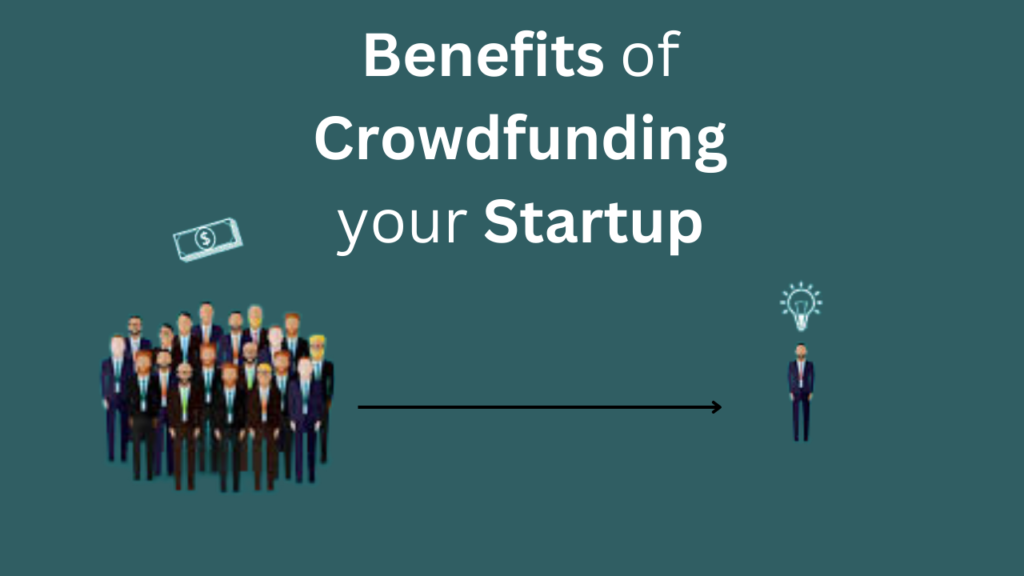In recent years, crowdfunding has emerged as a powerful alternative to traditional fundraising methods for startups. With platforms like Kickstarter, Indiegogo, and GoFundMe, entrepreneurs have gained access to a vast pool of potential supporters eager to back innovative ideas. However, like any fundraising strategy, crowdfunding comes with its own set of benefits and considerations. This article explores the advantages of crowdfunding and key factors to consider before diving in.
What Is Crowdfunding?

Crowdfunding is a method of raising capital through the collective effort of a large number of individuals, typically via online platforms. It allows startups to pitch their ideas to the public and request contributions in exchange for rewards, products, equity, or simply goodwill. There are several types of crowdfunding:
- Reward-Based Crowdfunding: Supporters contribute money in exchange for a reward, typically a product or service that the startup is creating.
- Equity-Based Crowdfunding: Investors contribute money in exchange for equity or shares in the company.
- Donation-Based Crowdfunding: People donate money to support a cause or project without expecting anything in return.
Benefits of Crowdfunding for Startups

1. Access to Capital Without Dilution
Crowdfunding platforms offer startups the chance to raise funds without giving up ownership or equity (in reward or donation-based models). This allows founders to maintain control over their business while securing the money they need to grow and develop their product.
2. Validating Your Idea
Crowdfunding campaigns can serve as a litmus test for your startup idea. If people are willing to contribute, it’s a sign that there is market demand for your product or service. A successful campaign can validate your business concept, attract future investors, and give you the confidence to move forward.
3. Building an Early Customer Base
Running a crowdfunding campaign helps build a community around your startup. Supporters become early adopters and brand ambassadors who are invested in your success. They can offer valuable feedback, spread the word, and create buzz around your product long before it officially launches.
4. Marketing and Visibility
Crowdfunding platforms have built-in audiences, providing startups with a marketing boost. A well-run campaign can garner media attention, social media shares, and interest from potential customers. Crowdfunding also gives entrepreneurs a chance to tell their story, build their brand, and engage directly with their audience, fostering strong relationships from the start.
5. Reduced Financial Risk
Unlike traditional funding methods, where entrepreneurs may need to borrow money or give up equity, crowdfunding allows startups to raise money upfront. This reduces financial risk, especially in reward-based crowdfunding, where entrepreneurs can pre-sell products to fund their production.
6. Potential for Viral Success
Crowdfunding campaigns can go viral if they capture people’s imaginations or emotions. A compelling story, unique product, or innovative approach can lead to widespread sharing, resulting in significant exposure and increased funding. This kind of organic publicity is often difficult and expensive to generate through traditional marketing channels.
Key Considerations for Crowdfunding

1. Choosing the Right Platform
Not all crowdfunding platforms are created equal. Each platform caters to different types of projects and has unique rules, fees, and audience demographics. Kickstarter, for example, focuses on creative projects, while Indiegogo offers more flexibility in campaign types. Research each platform’s strengths, weaknesses, and audience to determine the best fit for your startup.
2. Campaign Preparation and Execution
Running a successful crowdfunding campaign requires thorough planning and execution. You’ll need a compelling pitch, professional visuals, and a clear explanation of your product or service. Preparing a detailed campaign page, setting realistic funding goals, and offering attractive rewards are critical to engaging potential backers. Don’t underestimate the time and effort required to promote your campaign and keep supporters engaged throughout the process.
3. Meeting Production and Delivery Expectations
Once your campaign is funded, you’ll need to deliver on your promises. Failing to fulfill orders or rewards in a timely manner can damage your startup’s reputation. Delays in production, poor product quality, or miscommunication with backers can lead to dissatisfaction and negative publicity. Ensure that you have a solid plan for production, shipping, and customer service before launching your campaign.
4. Managing Your Finances
Crowdfunding platforms charge fees (typically around 5% of the total funds raised) in addition to payment processing fees. You’ll also need to budget for production, fulfillment, shipping, and any rewards you’ve promised to backers. Be sure to account for all these expenses when setting your funding goal to avoid falling short of what you need.
5. Legal and Regulatory Considerations
In equity crowdfunding, legal and regulatory compliance is crucial. You’ll need to ensure that you meet all relevant securities regulations in your country, as equity crowdfunding involves offering shares or ownership stakes to investors. It’s important to consult with a legal advisor to ensure your campaign complies with regulations and protects both your company and investors.
6. Crowdfunding Fatigue
While crowdfunding can be a powerful tool, it’s not without risks. Crowdfunding fatigue is a phenomenon where the public becomes less interested in campaigns due to an oversaturation of projects. This makes it increasingly difficult for new campaigns to stand out. To overcome this, you’ll need to have a compelling story and innovative product that captures attention in a crowded marketplace.
Is Crowdfunding Right for Your Startup?

Crowdfunding offers an exciting way for startups to raise funds, validate their ideas, and build a community. However, it’s not the right solution for every business. Success requires careful planning, effective marketing, and the ability to deliver on promises. If you’re considering crowdfunding, ask yourself:
- Do I have a product or service that will appeal to a wide audience?
- Am I ready to invest time and effort into preparing and promoting my campaign?
- Can I realistically meet the expectations I set for backers?
- Do I want to maintain full control over my business, or am I open to offering equity?
If the answer to these questions is yes, crowdfunding could be a great option for your startup.
Conclusion
Crowdfunding has transformed the way startups raise capital, offering a unique opportunity to secure funding without giving up equity (in reward-based models) or taking on debt. It can help validate your business idea, build an engaged community, and provide early visibility. However, the process requires careful planning, execution, and follow-through to be successful. By weighing the benefits and considerations, you can determine if crowdfunding is the right strategy to fuel your startup’s growth.





